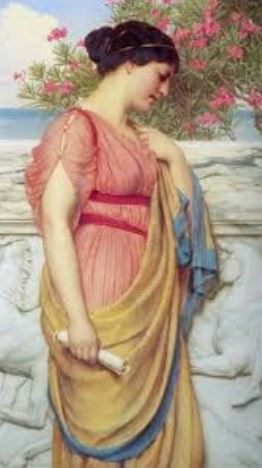Alcmene, a central figure in Greek mythology, is best known as the mother of Hercules, the mighty hero celebrated in countless ancient stories. Her tale is one of divine intervention, mortal virtue, and the complex interplay between gods and humans that defines much of Greek mythological tradition.
Alcmene’s Noble Lineage and Early Life
Alcmene was born into a royal family, the daughter of Electryon, king of Mycenae, and Anaxo. Her lineage boasted connections to many of the great dynasties of the time, and she was noted for her beauty and wisdom from a young age. Her marriage to Amphitryon, a prince of Tiryns, marked the beginning of a life steeped in both mortal and divine drama.
The Marriage to Amphitryon and the Tragic Turn
Amphitryon, though a prince, lived under the shadow of a dark fate. During a quarrel over cattle, he accidentally killed Electryon, Alcmene’s father. Despite this tragic event, Alcmene remained loyal to Amphitryon. Following the incident, they fled to Thebes, where they hoped to start anew. Yet, even in this new land, the gods had different plans for them.
Zeus’ Deception and the Birth of Hercules
Zeus, the king of the gods, was captivated by Alcmene’s beauty and virtue. He devised a plan to seduce her by taking the form of her husband, Amphitryon. Unaware of the deception, Alcmene spent what she believed to be a night with her husband, only to conceive Hercules, the son of Zeus. The following night, the real Amphitryon returned and also lay with her, leading to the conception of another son, Iphicles. This event set the stage for Hercules’ dual heritage: part divine, part mortal.
Alcmene’s Role in Raising Hercules
As the mother of a demigod, Alcmene faced challenges that few other mortals could understand. She raised Hercules with great care, knowing that he was destined for greatness but also that he would face trials beyond the scope of ordinary men. Her influence was pivotal in shaping Hercules into the hero he became, instilling in him values of courage, resilience, and a strong moral compass.
Alcmene and Amphitryon’s Later Years
After the birth of her sons, Alcmene continued to play a significant role in their lives. Hercules, in particular, often sought her guidance even as he grew into his own legendary status. Meanwhile, Amphitryon remained a supportive figure, despite the knowledge that his wife had been deceived by Zeus. The couple’s relationship endured, marked by both the pain of their early years and the glory of their son’s achievements.
Alcmene’s Legacy in Greek Mythology
Alcmene’s story does not end with the birth and life of Hercules. After her death, she was honored by many, and in some versions of the myth, she was granted immortality by the gods. This act of divine favor underscores her importance in Greek mythology, not just as the mother of a hero, but as a character in her own right whose life was touched by the gods.
Her legacy lives on in the countless retellings of her story, each highlighting different aspects of her character—her beauty, her virtue, her suffering, and her strength. Alcmene remains a symbol of the enduring impact of divine interactions in mortal lives and the complex, often tragic nature of such relationships.
Alcmene’s Enduring Influence
Alcmene’s life is a testament to the powerful influence of the gods in Greek mythology, as well as the resilience of mortal women who were often caught in the whims of these deities. As the mother of Hercules, she ensured that her son was prepared for the incredible challenges he would face, and through her, the legacy of one of Greece’s greatest heroes was secured. Alcmene’s story, full of divine intrigue and mortal perseverance, continues to fascinate and inspire those who delve into the rich tapestry of Greek mythology.
